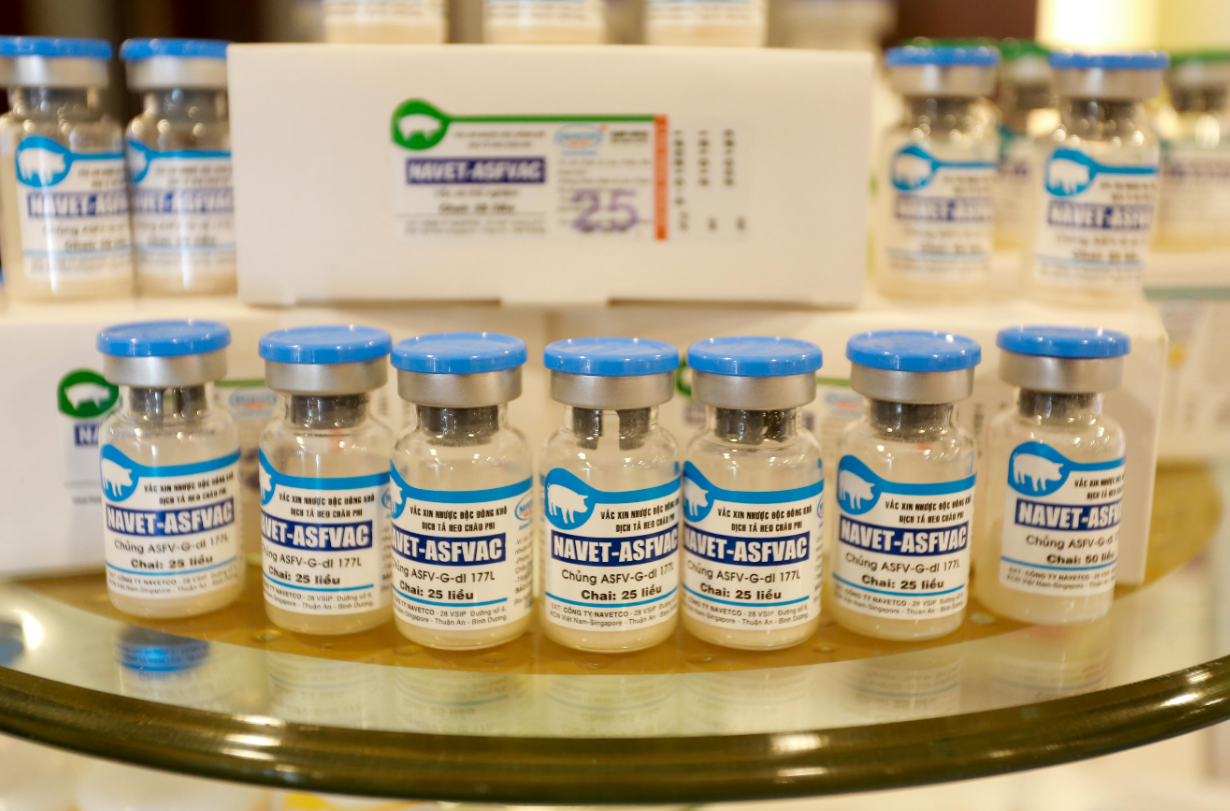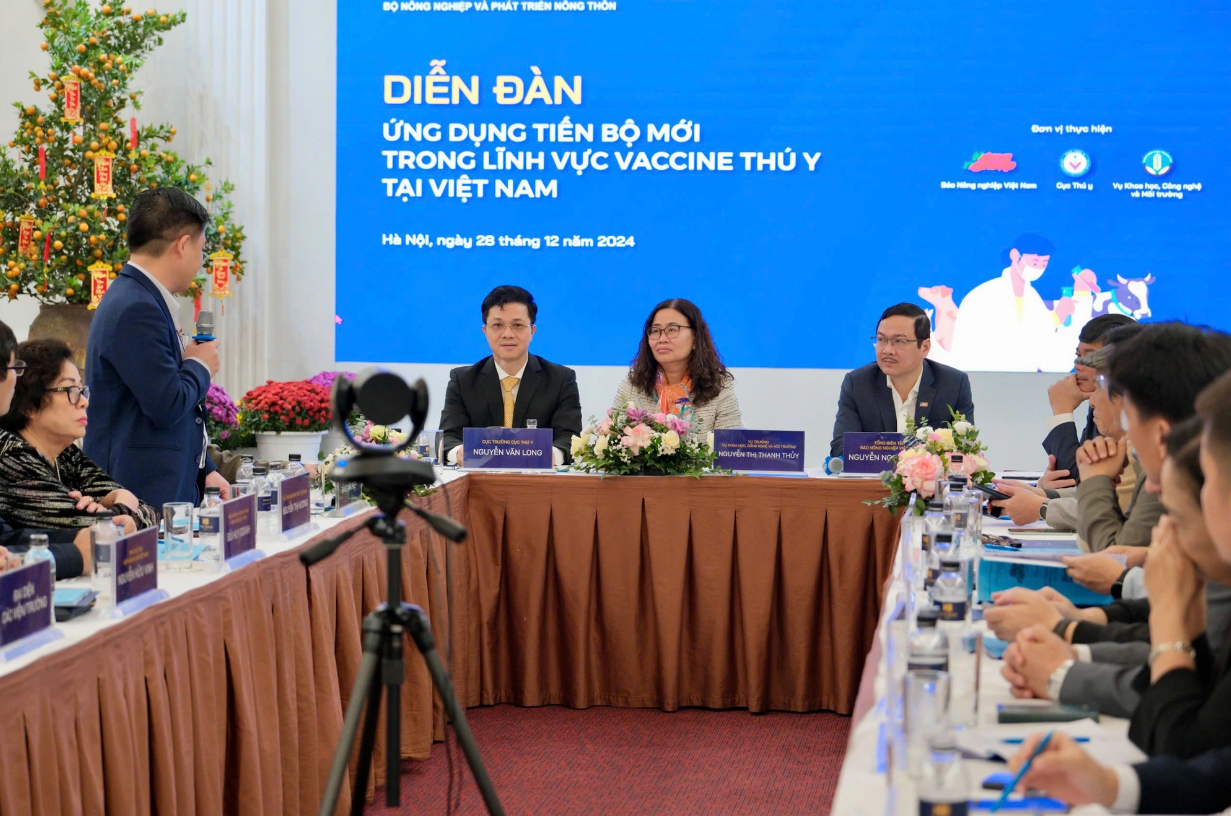Vietnam has developed various vaccines to combat avian influenza, foot-and-mouth disease, and African swine fever but farmers continue to prefer imported options, expressing skepticism about the quality of domestically produced vaccines.
This has contributed to their limited adoption, according to discussions at a workshop held in Hanoi on Saturday.
The country boasts 92 veterinary medicine production facilities certified under GMP-WHO standards, including 12 dedicated to vaccine manufacturing, Le Toan Thang, head of the Veterinary Medicine Management Division under the Department of Animal Health, shared during the event focused on advancements in Vietnam's veterinary vaccine industry.
As many as 218 domestic veterinary vaccines, including avian influenza, foot-and-mouth disease, and rabies jabs, have been registered for use nationwide.
Notably, Vietnam has successfully produced the African swine fever vaccine over the past few years.
Compared to other countries and territories such as Thailand, Indonesia, and Taiwan, Vietnam ranks first in the region in veterinary vaccine production.
However, the country annually spends nearly US$100 million importing several types of vaccines against avian influenza, blue-ear disease, and foot-and-mouth disease.
Vietnam produces veterinary vaccines worth over $30 million each year, while being able to scale up its manufacturing capacity.
The production of avian influenza vaccines at domestic facilities can be doubled, but several firms and farmers prefer foreign vaccines, resulting in a limited supply of local vaccines.
|
|
| Representatives at a workshop on veterinary vaccines held in Hanoi on December 28, 2024. Photo: Chi Tue / Tuoi Tre |
Around 200 million doses of avian influenza vaccines are produced locally each year, while nearly 550 million doses of imported vaccines are brought into the country annually.
Nguyen Huu Vu, chairman and general director of Hanvet Company, attributed the low adoption of domestic vaccines to their less-established reputation compared to global giants like Pfizer.
He noted that Vietnam's production and quality control capabilities remain underdeveloped, leading to limited enthusiasm among animal husbandry companies and farmers for locally made vaccines.
“The quality of Hanvet’s vaccines equals just 80 percent of that of foreign vaccines,” the Hanvet representative admitted, adding that the prevalence of Vietnamese veterinary vaccines in the local market remains limited.
Dr. Nguyen Thi Huong of the Vietnam Veterinary Association highlighted that the preference for foreign vaccines poses a significant barrier to the broader adoption of locally produced shots.
To address this, Huong emphasized the need for domestic manufacturers not only to improve vaccine quality but also to implement effective strategies to promote their products and build customer trust in local vaccines.
“The quality will define the brand,” she said.
In recent years, many foreign-invested enterprises have adopted a chain system that integrates vaccines with breeds, veterinary medicines, and advanced technologies, creating challenges for local vaccines to compete and gain acceptance among these customers, the workshop revealed.
The event was jointly organized by the Department of Animal Health, the Department of Science, Technology, and Environment under the Ministry of Agriculture and Rural Development, and Nong Nghiep Viet Nam (Vietnam Agriculture) newspaper.
Like us on Facebook or follow us on X to get the latest news about Vietnam!






















































